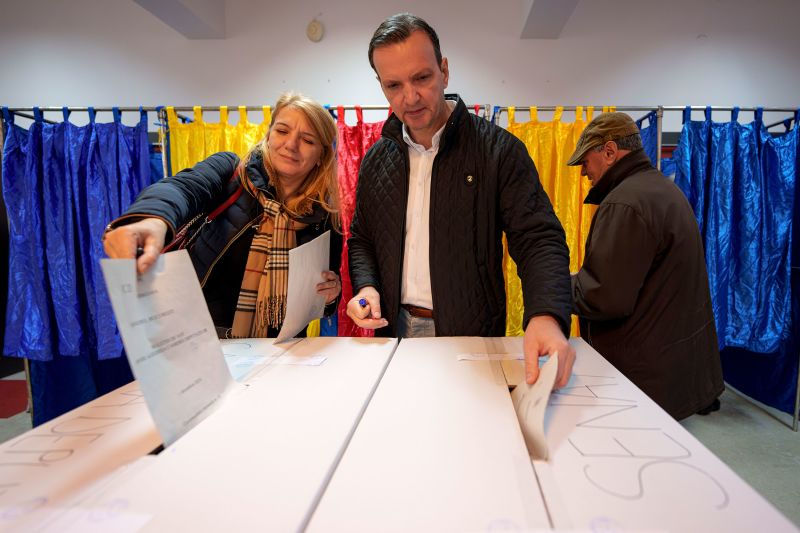
Romanians Head to the Polls Amid Turmoil: Is Russian Interference Affecting the Elections?
Romanians Vote in Parliamentary Election Amid Turmoil Over Claims of Russian Interference in Presidential Race
The recent Romanian parliamentary election took place amidst a backdrop of turmoil and controversy, sparked by claims of Russian interference in the country’s presidential race. The election, held to choose members of the Chamber of Deputies and the Senate, saw voters exercising their democratic right despite concerns over foreign influence.
In the lead-up to the election, accusations of Russian meddling were raised by various political figures and analysts, highlighting the growing tensions between Romania and its Eastern neighbor. The allegations of interference, ranging from spreading disinformation to funding political campaigns, cast a shadow over the electoral process and raised questions about the integrity of Romania’s democracy.
Despite the accusations, Romanian voters turned out in large numbers to cast their ballots and voice their opinions on the country’s future direction. The election saw several major political parties vying for power, each presenting its platform and vision for Romania’s progress. Issues such as economic development, social welfare, and European integration featured prominently in the campaign rhetoric, as parties sought to woo voters with their policies and promises.
The election results reflected a diverse political landscape, with multiple parties securing seats in the parliament. The outcome indicated a fragmented political landscape, with no single party winning an outright majority. This scenario is likely to lead to coalition building and political negotiations to form a stable government capable of addressing the country’s challenges and moving forward with its legislative agenda.
Amidst the political maneuvering and post-election analysis, the allegations of Russian interference continue to linger, raising concerns about the vulnerability of Romania’s democratic processes. The need for robust safeguards against external meddling and disinformation campaigns has become more apparent, emphasizing the importance of vigilance and transparency in the electoral system.
As Romania looks towards the future, the election serves as a reminder of the country’s commitment to democracy and the resilience of its people in the face of challenges. By participating in the electoral process and exercising their democratic rights, Romanian citizens have reaffirmed their belief in the power of democracy to shape their nation’s destiny and guard against external threats to their sovereignty.
In conclusion, the Romanian parliamentary election, held against a backdrop of turmoil and claims of Russian interference, has underscored the importance of upholding democratic values and safeguarding the electoral process from external influence. As Romania moves forward with its new government, the challenge will be to ensure transparency, accountability, and integrity in governance, while addressing the concerns raised by the allegations of foreign interference.
